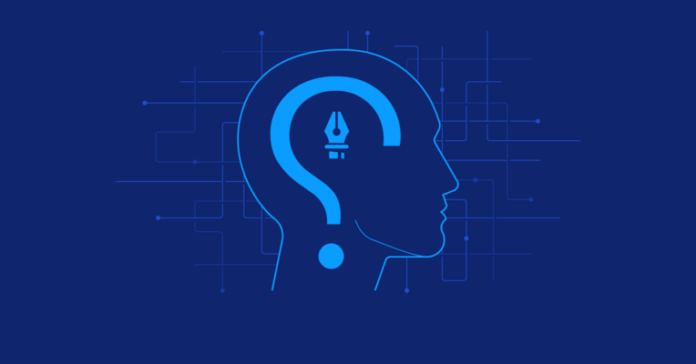Introduction
Welcome to The Thinking Person’s Guide to Education, a thought-provoking journey into the depths of education and its impact on individuals and society. In this blog, we will explore education from a critical and reflective lens, delving into the complexities, challenges, and transformative power of learning. The Thinking Person’s Guide to Education is a space where we engage in deep thinking, challenge assumptions, and uncover fresh insights and perspectives. Join us as we navigate the multifaceted landscape of education and strive to promote a more thoughtful and inclusive approach to learning.
Unpacking Education: Beyond the Surface
Education is a multifaceted concept that goes beyond the mere acquisition of knowledge and skills. In this section, we will unpack the different dimensions of education, such as critical thinking, creativity, and social-emotional learning. We will explore the importance of cultivating a well-rounded education that nurtures intellectual curiosity, fosters independent thinking, and promotes lifelong learning. By going beyond the surface, we can uncover the true transformative potential of education.
The Evolving Classroom: Shaping the Future of Learning
The classroom is a dynamic space that continues to evolve in response to the changing needs of learners and the advancements in technology. In this section, we will explore innovative teaching methods, digital tools, and personalized learning approaches that are shaping the future of education. We will discuss the benefits and challenges of incorporating technology in the classroom, as well as the importance of creating inclusive and engaging learning environments. Join us as we delve into the evolving classroom and explore the possibilities it holds for the future of learning.
Equity and Access: Empowering Every Learner
Education is a fundamental right that should be accessible to all individuals, regardless of their background or circumstances. In this section, we will examine the concept of equity in education and explore strategies for promoting inclusivity and providing equal opportunities for every learner. We will discuss the importance of addressing educational disparities, embracing diversity, and creating supportive learning environments where all students can thrive. Together, we can work towards a more equitable and inclusive educational landscape.
The Role of Teachers: Nurturing Minds and Hearts
Teachers play a vital role in shaping the educational experience and inspiring a love for learning. In this section, we will delve into the responsibilities and challenges faced by teachers in today’s educational landscape. We will explore the importance of teacher-student relationships, effective pedagogical practices, and the role of mentorship in nurturing the minds and hearts of learners. Join us as we celebrate the dedication and passion of educators and recognize their profound impact on the lives of students.
Education and Society: Connecting the Dots
Education is not isolated from the broader social context—it is deeply intertwined with societal values, aspirations, and challenges. In this section, we will explore the connection between education and society, examining how education influences and is influenced by social, economic, and cultural factors. We will discuss the role of education in fostering civic engagement, promoting social justice, and addressing global challenges. By understanding the interplay between education and society, we can strive for a more inclusive and transformative educational landscape.
FAQs
Q: Why is critical thinking important in education?
A: Critical thinking is a crucial skill in education as it empowers learners to analyze, evaluate, and apply information effectively. It enables individuals to question assumptions, consider multiple perspectives, and make informed decisions. By developing critical thinking skills, students become active and engaged learners, capable of solving complex problems and adapting to an ever-changing world.
Q: How can technology enhance the learning experience?
A: Technology has the potential to enhance the learning experience in various ways. It can provide access to a wealth of information, facilitate collaborative learning, and offer personalized learning opportunities. Technology can also foster creativity, engagement, and the development of digital literacy skills. However, it is important to strike a balance and use technology purposefully and responsibly, ensuring it aligns with educational goals and supports the diverse needs of learners.
Q: What can be done to promote equity in education?
A: Promoting equity in education requires a multifaceted approach. It involves addressing systemic barriers, such as unequal access to resources and opportunities, and fostering inclusive practices that value and celebrate diversity. Providing targeted support for underprivileged students, implementing culturally responsive teaching strategies, and creating inclusive curriculum and assessment practices are important steps towards promoting equity in education.
Q: How can education contribute to societal change?
A: Education plays a vital role in shaping societal change. By providing individuals with knowledge, skills, and critical thinking abilities, education empowers them to become active participants in their communities and agents of positive change. Education can foster empathy, social responsibility, and a sense of global citizenship, empowering individuals to address social issues, challenge inequalities, and work towards a more just and sustainable future.
Conclusion
The Thinking Person’s Guide to Education invites us to explore the depth and complexity of education, going beyond the surface to uncover fresh insights and perspectives. By delving into the evolving classroom, examining issues of equity and access, recognizing the role of teachers, and understanding the connection between education and society, we can foster a more thoughtful and inclusive approach to learning. Together, let us embrace the transformative power of education and strive for a future where every learner can thrive and contribute to a better world.
============================================


